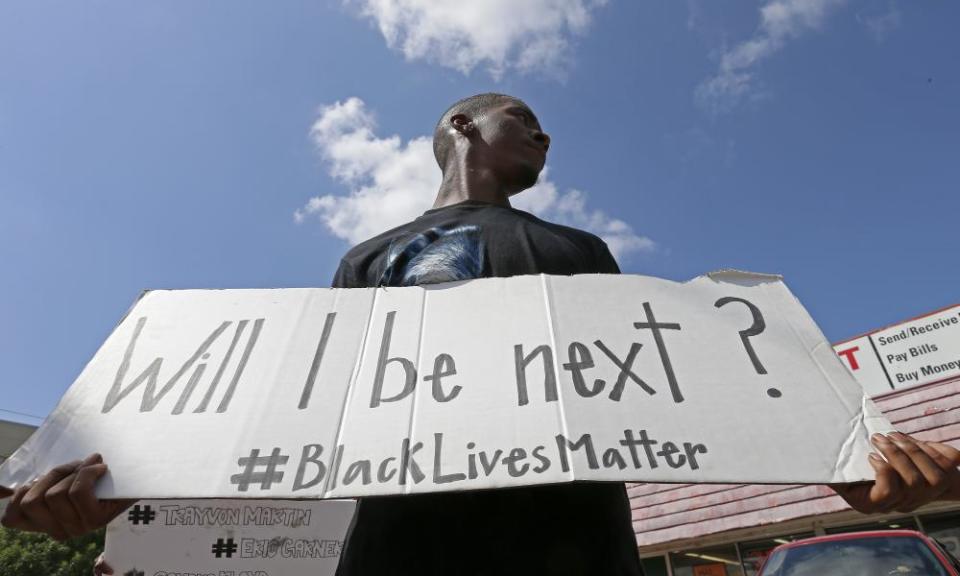US civil rights agency decries Trump administration’s lax approach to police violence
Recommendations to ‘return to vigorous enforcement of constitutional policing’ came a day after leading health group declared police violence a ‘critical’ public health

America’s lead governmental civil rights body on Thursday issued a sharp rebuke to the Trump administration’s lax approach to police violence, recommending that the government “return to vigorous enforcement of constitutional policing”.
The recommendations, from the US Commission on Civil Rights (CCR), came just a day after members of the American Public Health Association (APHA) took the unprecedented step of officially recognizing police violence as a “critical” public health issue. The national organization’s membership includes more than 25,000 public health professionals.
Both bodies relied heavily on findings from the Guardian’s 2015-2016 special project The Counted, which tracked US fatalities at the hands of law enforcement, to reach their conclusions.
The Trump administration cooled federal oversight of troubled police departments under former attorney general Jeff Sessions who, until being fired earlier this month, aggressively pushed away from the kind of federal interventions his predecessors had embraced for investigating departments accused of widespread racism or excessive use of force.
In his last act as Trump’s attorney general, Sessions made it harder for the US justice department to monitor troubled local police departments, by curtailing the attorney general’s ability to enforce court mandated reforms known as consent decrees.
Consent decrees had been used under the Obama administration to rein in a number of departments, including in Ferguson, Missouri, and Baltimore, following violent unrest in the wake of the killings of unarmed black men by police officers.
Sessions frequently argued as attorney general that consent decrees increase crime and decrease officer morale. But the CCR report found that in cities such as Los Angeles, where a consent decree had been in place until 2013, there was a 3o% decrease in use of force, a marked decrease in crime rates, and an increase in officer morale.
In a letter to Trump, the CCR chair, Catherine Lhamon, stated: “The United States Department of Justice should return to vigorous enforcement of constitutional policing … and the use of consent decrees where necessary to ensure that constitutional policing standards are upheld.”
The 60 year-old bipartisan commission is appointed by the president’s office and Congress but no longer has statutory authority to force any of its recommendations.
Lhamon was appointed by Obama during his last months in office and the CCR had commenced its investigation into police violence during Obama’s tenure as president.
In language somewhat similar to the CCR report, the new APHA policy recommends that federal, state and local governments “implement community-based alternatives” to law enforcement for “addressing harms and preventing trauma”.
While a number of researchers have made efforts to treat police violence as a public health issue in recent years, the formal recognition by the national association could foster a wave of new studies that approach the issue in novel ways. Public health based solutions tend to focus on the “upstream” causes of problem, as opposed to “downstream” answers like ordering officers to wear body cameras or providing them with increased access to less-lethal weapons like tasers.
The new language adopted by the APHA notes that “marginalized populations”, including people of color, Native Americans and the mentally ill, disproportionately bear the brunt of police violence. Research suggests that people of color accounted for more than 50% of years of life lost due to legal intervention in 2016, but account for just under 40% of the US population. Another study determined that mentally ill people are 16 times more likely to be killed by police than others.

